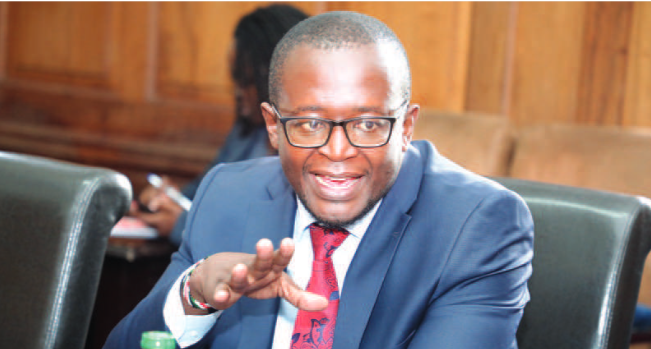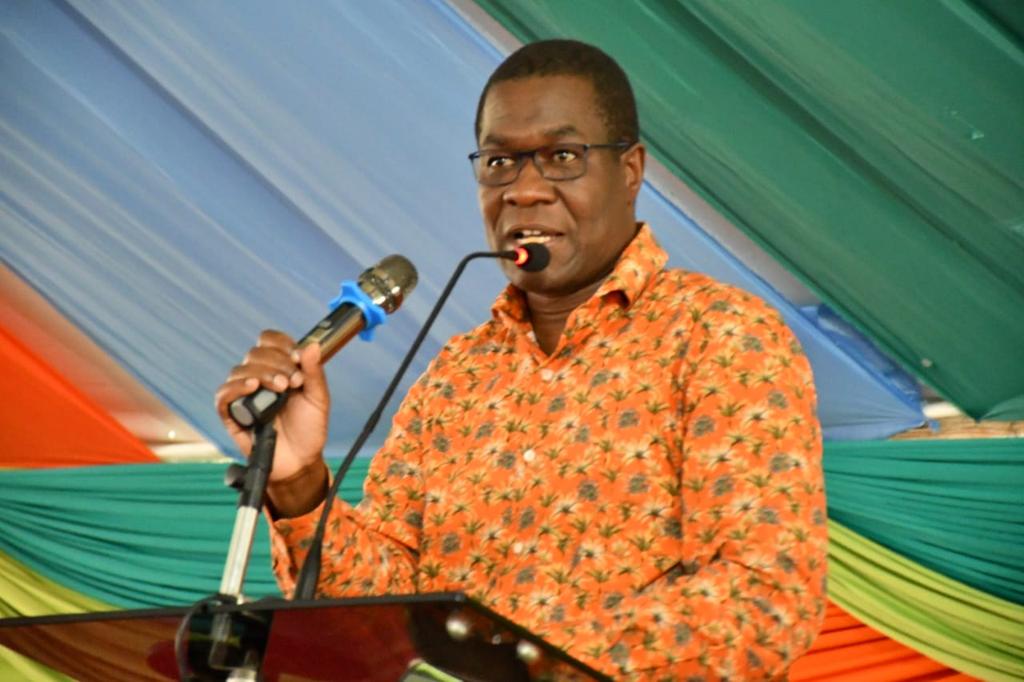Koome asks judges not to be cowed

Chief Justice and Judicial Service Commission (JSC) chair Martha Koome yesterday came to the defence of the Judiciary after President William Ruto vowed to defy Court Orders.
In a statement sent to newsrooms referring to Ruto’s attacks on the Judiciary, Koome who chairs the Judicial Service Commission (JSC) charged that judges and judicial officers have been subjected to public criticism and vilification for issuing court orders that are perceived to be against State programmes and policies.
“The JSC wishes to reaffirm the independence and integrity of the Judiciary as a co-equal arm of government, as enshrined in the Constitution and urges all Judges and Judicial Officers to continue performing their judicial duties without fear or favour. The Judiciary should live up to the constitutional edict, in Article 160(1), that safeguards the exercise of judicial authority,” said Koome.
She assured judicial officers that she has made it clear to the other arms of government and to the general public that the proper way to challenge a court decision, if one is dissatisfied, is to appeal or seek review in a higher court.
“Attacking judges and Judicial Officers who made a decision in public undermines all the values of our Constitutional order. Such attacks or comments when made on matters which are pending before any court also violate the sub judice imperative which is a rule of law.”
Adherence to law
While drawing the attention of State and Public Officers, the CJ said that the Constitution places positive duties on the State to ensure respect for the law and adherence to the law by providing citizens with effective mechanisms for resolving disputes between themselves and between them and the State.
“Where a citizen obtains a court order against the State and that court order is deliberately ignored or disobeyed by State officials, the right of access to justice is undermined because it fatally attacks the effectiveness of the legal system on which ordinary citizens rely to have their rights and legal duties enforced,” she said.
Instead, the Chief Justice reminded President Ruto and the Executive that JSC has a proven record of taking action against any judicial officer who is found to have breached the Judicial Code of Conduct and Ethics or engaged in corrupt practices.
Separately, the Kenya Magistrates and Judges Association (KMJA) also waded into the debate, castigating the President over his remarks.
In a scathing response to the Head of State, KMJA Secretary General Tom Mark Oloo reminded the President that article 22 of the Constitution empowers every person to move to court in the protection of the Constitution and threats and intimidation to litigants is an affront to the rule of law and constitutionalism.
“The Executive attacks against the Courts for doing their work must stop. Attacking the Judiciary for that which it is mandated to do by the Constitution is contemptuous and an abuse of the Constitution and the people of Kenya,” said Oloo.
He went on: “By disobeying the court orders the President is disobeying the very Constitution which he swore to protect and uphold by trampling upon the independence of the Judiciary. Where decisions of the Courts are not respected, the rule of law is betrayed and anarchy prevails.”
Right of appeal
The magistrates and judges said the rule of law envisages that where any party is not satisfied with the decision made by a court, such a party ought to exercise the right of appeal.
In addition, the judicial officers contend that where such a party has been bestowed with public trust, they could even approach Parliament to put in place laws that are in tandem with our Constitution values and principles.
“We must acknowledge that the Judiciary is an Independent arm of the government separate from the Executive and Legislative arms. This separation of powers is enshrined in the Constitution and is fundamental to the function of our democracy,” said Oloo.
The Magistrates and Judges reminded President Ruto that Article 160 of the Constitution explicitly outlines the Independence of the Judiciary, adding that Judges and Judicial officers shall not be subject to the control or direction of any person or authority other than the Constitution and the Law.
The judicial officials through their Association further argued that Article 159 (2) of the Constitution establishes the principles of judicial authority, affirming that the Judiciary shall be guided by the ideals of Justice including access to Justice, fairness, equality and equity.
“Through the Judiciary, disputes are resolved, laws are interpreted and justice is administered. Any assault on the Judiciary or attempts to undermine its integrity can affect our democracy. We call upon Kenyans of goodwill to stand up and protect the Constitution and the Independence of Judiciary.”
Law Society of Kenya (LSK) President Eric Theuri on his part charged that reminded the president that the judiciary, through its impartial interventions, has both nullified a prior presidential election and, at another juncture, upheld his very own election.
“The President, as the foremost custodian of the rule of law, should refrain from undermining the judiciary and instead, utilize legal avenues at his disposal to challenge decisions that he finds aggrieving. Public incitement against the judiciary is not only detrimental to our constitutional fabric but also compromises the sanctity of our legal system,” said Theuri.
Theuri instead suggested that any allegations of corruption against judicial officers must be channeled through the JSC, avoiding arbitrary roadside declarations.
“We call upon the President to avail any evidence of corruption of judges to the JSC and avoid casting aspersions upon the entire institution of the Judiciary. Upholding the rule of law requires the President to lead by example, fostering a society where legal disputes are resolved through established channels, not through public lynching.”












